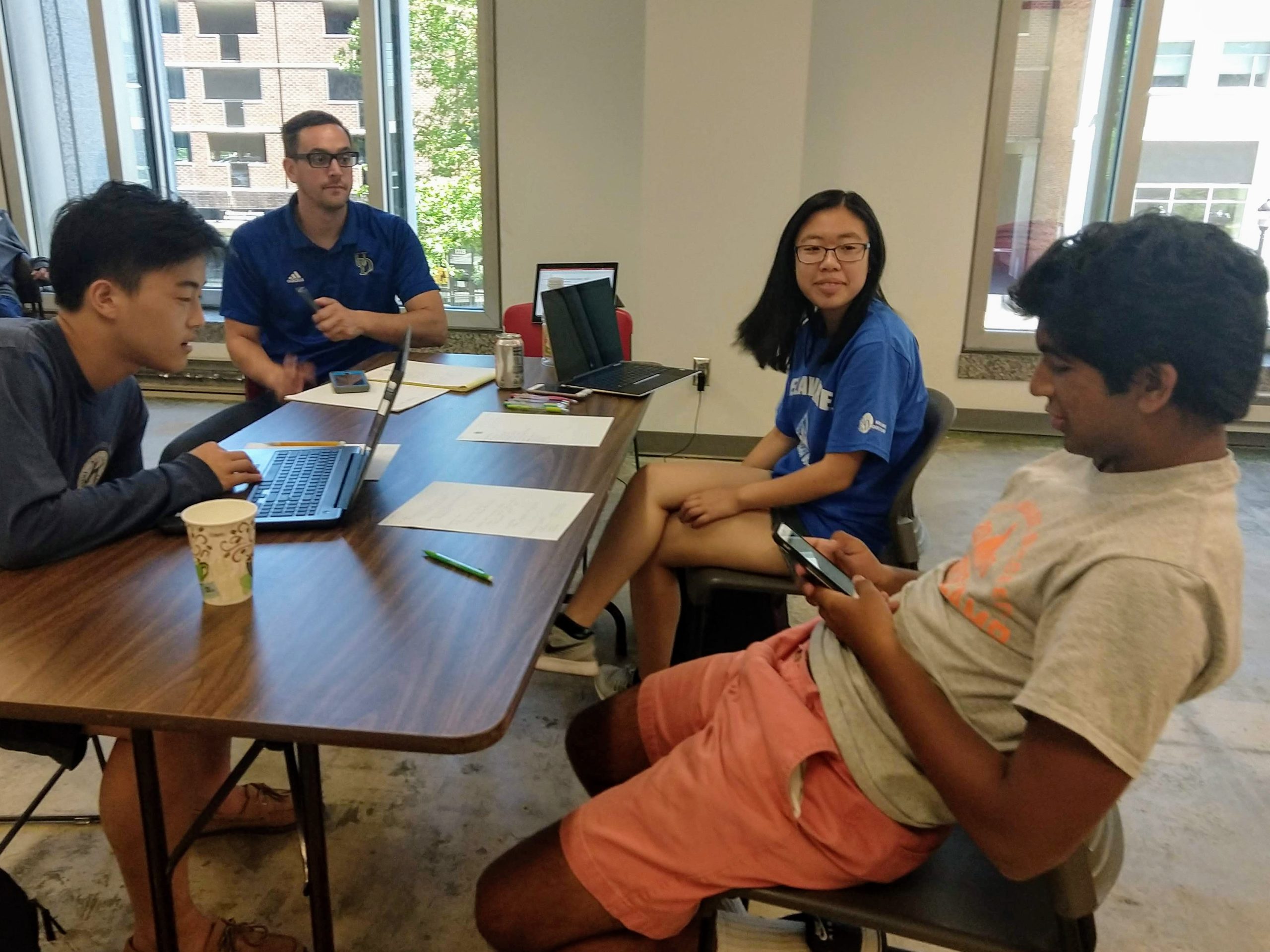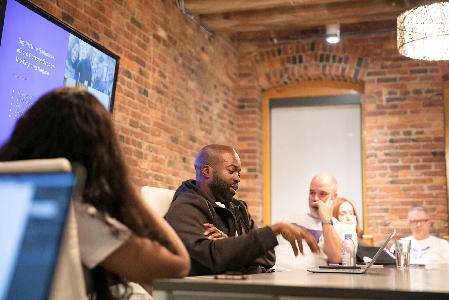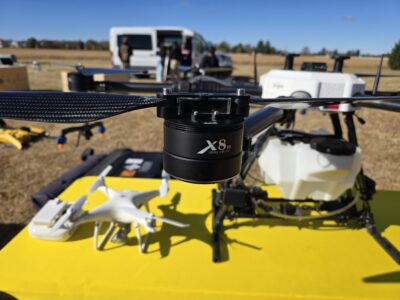When should students start learning the basics of entrepreneurship and design thinking? High School? Middle school? Elementary?
There’s no definitive answer to that question, but Summer Collab, in partnership with University of Delaware and Bank of America’s Student Leaders program, are undertaking a six-week project on teaching entrepreneurship to 4th and 5th graders, including two weeks of applying the curriculum with real kids at Tyler’s Camp at Castle Hill Elementary in New Castle.
The students — rising University of Delaware freshman Hannah Kim, rising Archmere senior Rishi Subbaraya, rising Charter School of Wilmington senior Dennis Chu and rising Delaware Military Academy senior Jackie Means — will research, brainstorm and create the lesson plan with the help of UD’s Nat Measley, facilitator for the entrepreneurship camp.
“We have two goals,” Measley said in an interview with Technical.ly. “The first is to adapt the curriculum [designed for young adults]. The second is for this crew to raise $36,000 for Summer Collab, which may or may not involve the kids. We’re doing theory and practice.”
To adapt the curriculum, they need to start by adapting the definition of entrepreneurship itself.
“At Delaware, we use a basic definition of entrepreneurship: ‘Pursuing the creation, delivery and capture of value from any new idea,'” said Measley. “That’s super broad, right? And, within each of those words within that definition there’s a hundred areas of research, all of which is happening at UD. We’re going to adapt that definition and how we teach it.”
The kids who attend Tyler’s Camp are exclusively low-income and pay no fees or tuition for the program. Most are connected to the camp via city community centers. The camp has three sites serving 2,100 kids this year, including its Salesianum and Georgetown campuses.
The young program leaders hope that teaching design thinking theory will benefit the kids in the long term.
“I think it’s important for them to learn the entrepreneurial mindset, because it will help later in life,” said Kim. “Getting the skills to think outside of the box, to learn how to create new ideas and how to put them into action is really important.”
“You can make a big impact over a long period of time,” said Subbaraya, who is in his third summer with SummerCollab, suggesting that the way younger kids see entrepreneurship now can shape their interest in it in the years to come.
“We want make a lasting impression on the kids,” said Chu.
The challenges of getting elementary-aged kids excited about sophisticated business theories designed for the college level are at the heart of the young adults’ work.
“That’s a big part of entrepreneurship. You have a problem statement and then you work on solving it by hearing from others,” said Measley. “So if I create the next great soda pop, but it’s the wrong flavor and no one will drink it, we should change the flavor. Customer feedback is what rules the day.”
At the end of the two-week, one-hour-a-day camp session, the team will come together again to look at what worked, and what didn’t.
If you’re interested in supporting projects like Summer Collab’s entrepreneurship camp, you can donate here.
Before you go...
Please consider supporting Technical.ly to keep our independent journalism strong. Unlike most business-focused media outlets, we don’t have a paywall. Instead, we count on your personal and organizational support.
Join our growing Slack community
Join 5,000 tech professionals and entrepreneurs in our community Slack today!





